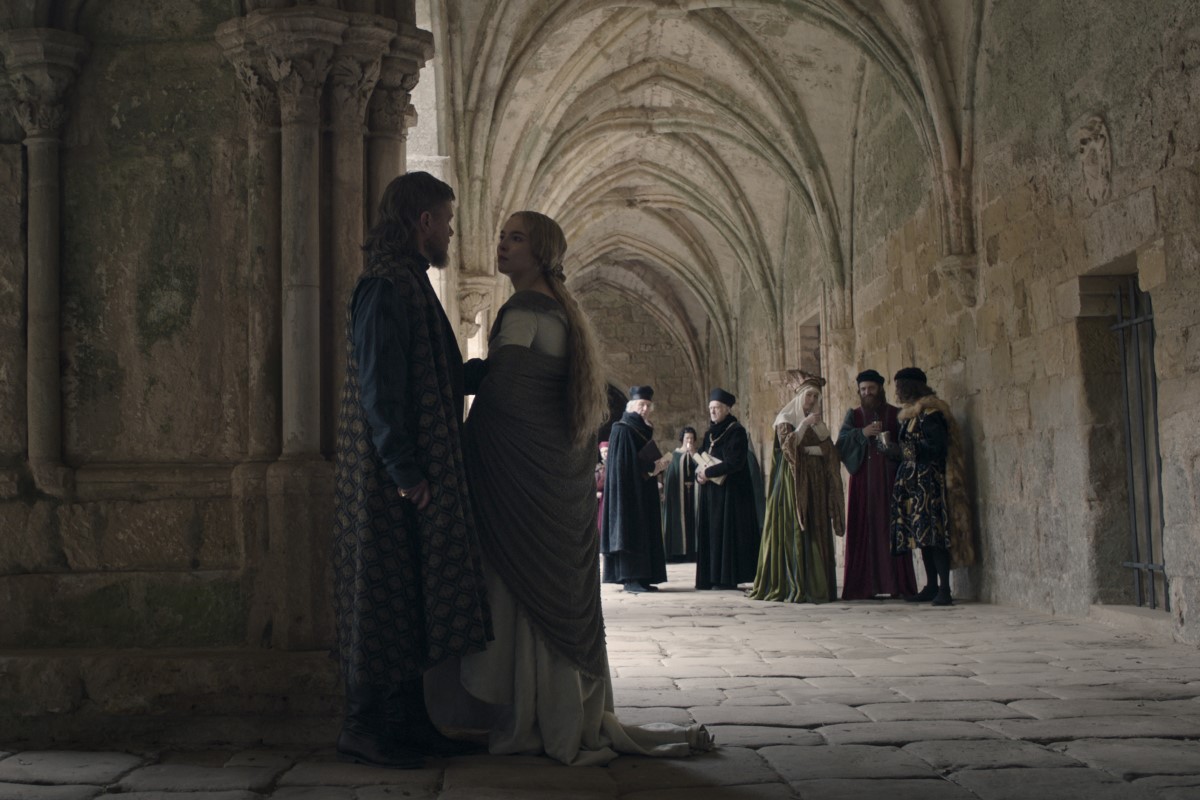This review of The Last Duel contains spoilers.
Top Image: 20th Century Studios
Sexual assault is always a complex topic of discussion. In The Last Duel, director Ridley Scott attempts to tackle this weighty topic through events in 1380s France. One would think that society then would have been a lot more different regarding their attitude towards rape. It turns out they were already fairly progressive over 600 years ago—it’s just that modern society hasn’t made all that many strides since then.
Based on actual events, The Last Duel is the film adaptation of the book of the same name. It revolves around the clash between the knight Jean de Carrouges (Matt Damon), whose wife Marguerite de Carrouge (Jodie Comer) was sexually assaulted by rival knight Jacques Le Gris (Adam Driver).
ADVERTISEMENT
This led to a trial by combat, a duel, between Carrouges and Le Gris, to determine who was right. It was to be the last officially recognised trial by combat in France. The movie tells the tale from three perspectives—Carrouges, Le Gris, and Marguerite—each shedding more light on the events that have transpired.
The film begins with the friendship between Carrouges and Le Gris, fast friends who serve under Count Pierre d’Alençon (Ben Affleck) during a period of war and famine.
Carrouges is a bit of a well-meaning lout compared to the more eloquent Le Gris. But this difference in character leads Count Pierre to favour Le Gris, leading to a souring of relations between the former pals.
It’s portrayed in a startlingly contemporary perspective too, painting the situation as one of mere petty office politics in ye olde English (strangely, there are no French accents to be heard in this version of France) rather than an epic and sweeping tale of brotherhood betrayed.
You have the Dilbert-type boss in the form of Count Pierre, the politically savvy Le Gris, and the hardworking but disgruntled employee, Carrouges, who repeatedly voices out how slighted he feels by Count Pierre’s favouritism and Le Gris’ disrespect. Anyone who’s been in a workplace can empathise with Carrouges fundamental complaint, which boils down to “why has Le Gris been promoted over me when I did more work”—paraphrased, of course.
Affleck’s Count Pierre steals the show before Marguerite enters the story. He takes to the role with great relish in his portrayal of what is basically a spoilt rich boy who plays favourites. You haven’t seen Affleck smile so much in any of his roles since his marital woes with Jennifer Garner, and it’s a delightful performance that he delivers with aplomb.
It’s just a pity that story-wise, you don’t need Affleck’s character to take up such a significant role. But when you’re the writer, producer, and the founder of the production company that made the film (Matt Damon is the other writer/producer company founder), such creative liberties can be taken.
Each Act of the film depicts the story from the perspective of one of the characters, first Carrouges, then Le Gris, and finally Marguerite. Of course, the men’s perspectives are depicted first, which again highlights the issue of sexism, although there is a case to be made in service of a narrative purpose for placing the woman’s perspective last.
ADVERTISEMENT
When held up against the other two men’s (one of whom is her husband), Marguerite’s account spotlights just how little of a voice she has as a woman. It manifests in the little things like how Carrouges demeans her for wearing a dress that is too low-cut to her evidently superior but unrecognised administrative skills in managing Carrouges’ household and estate. Not that different from today, when you think about it.
And then there’s the rape.
We are compelled to watch it twice (first from Le Gris’ perspective, then from Marguerite’s), so fair warning. But it takes place with no other witnesses, so when Marguerite pursues legal action, it ultimately becomes a matter of “he said, she said”.
Even in his private conversations, Le Gris maintains that it wasn’t rape—that Marguerite wanted it too. There are vast shades of familiar #MeToo tropes as the trial plays out in court. This is what gets under your skin the most—the sheer callousness of virtually everyone’s response to the alleged assault.
You see, Marguerite gets pregnant after the attack (a subplot is that she has been trying to conceive, with no luck, prior to the event) but is repeatedly reminded that, according to 1380s doctors, pregnancy can only occur if the sex act brings her pleasure. It’s brought up several times that she commented on Le Gris’ attractiveness, which casts doubt on whether it was a rape or a consensual act.
What is most horrifying is that this isn’t framed as a sex crime against Marguerite, but rather a property crime against Carrouges—the former is seen as a ‘property’ of the latter.
But this is progressive 1380s France after all, so lawyers are consulted. Carrouges and Le Gris talk to their counsel, pursue different legal avenues, and are provided with the kind of legal advice you’d expect from a law drama rather than a historical film. As with office politics, it’s amazing to see how problematic the legal system could be back then and how little has changed since then.
Faced with the very real possibility that justice might not exist, Carrouges decides to file for a trial by combat. Whoever wins the battle will be considered right in the eyes of God. Should Carrouges lose, he dies, and Marguerite will be burnt at the stake because it also means that her accusations were false.
There’s something to be said for all the progressiveness and contemporary treatment of the situations when the story ultimately ends in a brawl of testosterone because of a property crime. There’s nothing gallant about it, as Carrouges isn’t so much fighting for her honour as he is battling for his pride. After all, if he dies, she dies.
With so much history between Carrouges and Le Gris, the fight is really an expression of their unresolved tensions. It’s about ego. But even until the bitter end, Le Gris doesn’t think he has done anything wrong. His dying words are “I am innocent”.
It’s a story that could easily take place today—one where justice doesn’t so much prevail as it is beaten out of the perpetrator. It’s a tale of the sheer delusions of men and the atrocities committed against women.
The Last Duel begins in a reasonably entertaining way before it descends into darker territory. Indeed, the juxtaposition of its premise (a trial by combat) against a crime of such magnitude (a rape) is what leads us to reconsider how little the world has changed. But what’s most horrifying is that though this may be the last trial by combat, it certainly won’t be the last time we hear of sexual assault by people in power.






